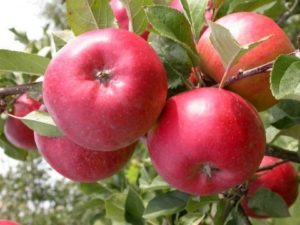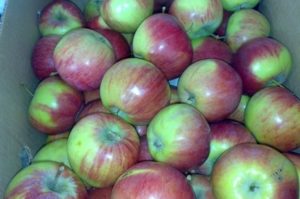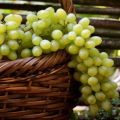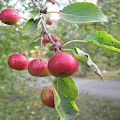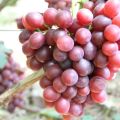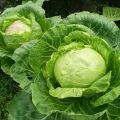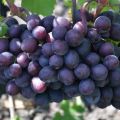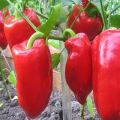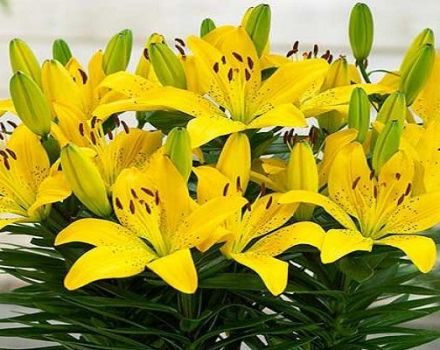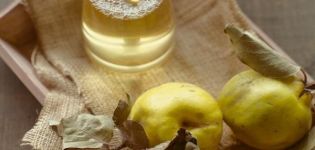Description and characteristics of the apple tree variety Gift to Grafsky, planting and care rules
Late varieties of apple trees are chosen for winter storage. Fruits ripen in late September or early October. Fruits are stored until mid-spring. One of the later varieties of the culture is an apple tree called Gift to Grafsky. Red-purple fruits have a sweet and sour taste, light aroma. Further information on planting, care, the nuances of fruiting, the advantages and disadvantages of the plant.
Origin of culture
The gift to Grafsky was brought out in the 70s of the 20th century. The selection work was carried out by specialists from an experimental station located in the Vologda region. They crossed the elite American D101 variety and the familiar domestic Vyaznikovka. The breeders named the bred apple tree in honor of the director of the state farm, on the territory of which the station was located.
Advantages and disadvantages
The positive qualities of culture include the following characteristics:
- frost resistance;
- fast growth;
- good immunity;
- unpretentious care;
- regular fruiting;
- excellent taste;
- good keeping quality.
The negative qualities of the apple tree include poor lighting of the lower branches, the unequal size of the fruits.
Characteristics of the variety
The culture belongs to late winter varieties. Fruits can be stored at home until mid-spring, in industrial storage - until early summer.

External parameters
Apple trees of the Gift Grafsky variety are tall. The description says that the crown is thick, spreading. The root system extends beyond the trunk circle.
Tree height
Depending on the rootstock used, the height of the tree varies between 5-8 meters. The growth of the apple tree is regulated by pruning.
Crown width
The crown diameter is about 4 meters. On the spreading crown, leaves are densely located, protecting the trunk from the bright rays of the sun.
Annual growth
Apple tree Gift to Grafsky is distinguished by its rapid growth. Shoots are lengthened by 1.2 meters annually.
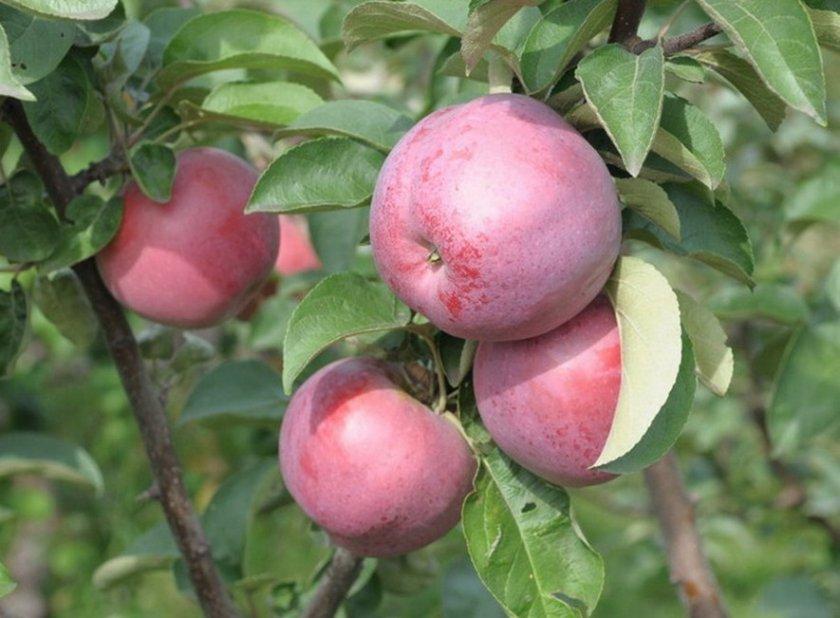
Branching of the root system
The apple tree builds up the horse system up to 18-20 years of age. The presence of thin hairs is of great importance: through them nutrition occurs, as well as the release of decay products. Some of the roots extend beyond the edges of the trunk circle.
Fruits and their taste
The mass of apples is 250-300 grams. The skin is colored red-violet.The fruit is sweet and sour, with a light candy aroma. The pulp is fine-grained, colored yellow. Tasting score - 4.3 points out of 5.
Tolerance to low temperatures and drought
Trees are able to withstand frosts down to -42 ° C. Therefore, the culture can be grown in the northern regions. Due to its well-developed root system, it can withstand a short drought.

Disease resistance
Apple tree Gift to Grafsky has good immunity. The trees are resistant to many fungal diseases.
Pollinating varieties
The culture is not self-fertile. In order for the plant to bear fruit abundantly, pollinating trees need to be planted next to it. The best varieties of apple trees for pollination: Moskovskoe later, Sinap Severny, Studencheskoe.
Important! Trees should bloom at about the same time.
Yield
Up to 250 kilograms of apples are harvested from an adult plant. Fruiting is annual. Begins 3 years after planting. The fruits ripen in autumn.
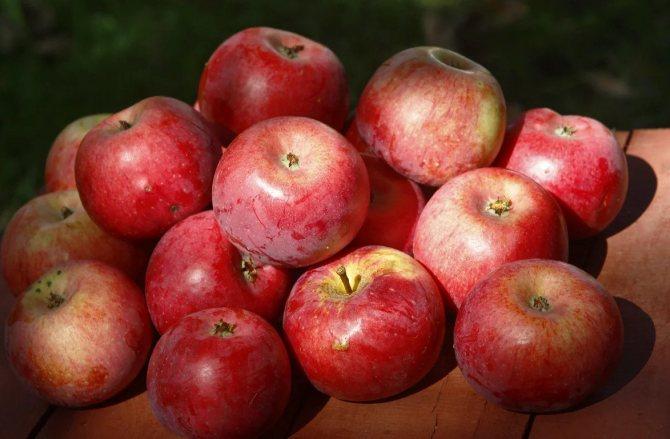
Self-fertility
Apple tree Gift to Grafsky does not apply to self-fertile varieties. For abundant fruiting, planting pollinating trees nearby is required.
In which areas does it grow
The frost-resistant culture is capable of growing in areas with harsh winters. Trees can withstand temperatures of -42 ° C without loss of yield.
Cultivation technology
Seedlings are purchased from plant nurseries of the same region in which they will grow in the future.
Landing
Trees are capable of bearing fruit for 20 years. Therefore, the landing site is carefully selected.
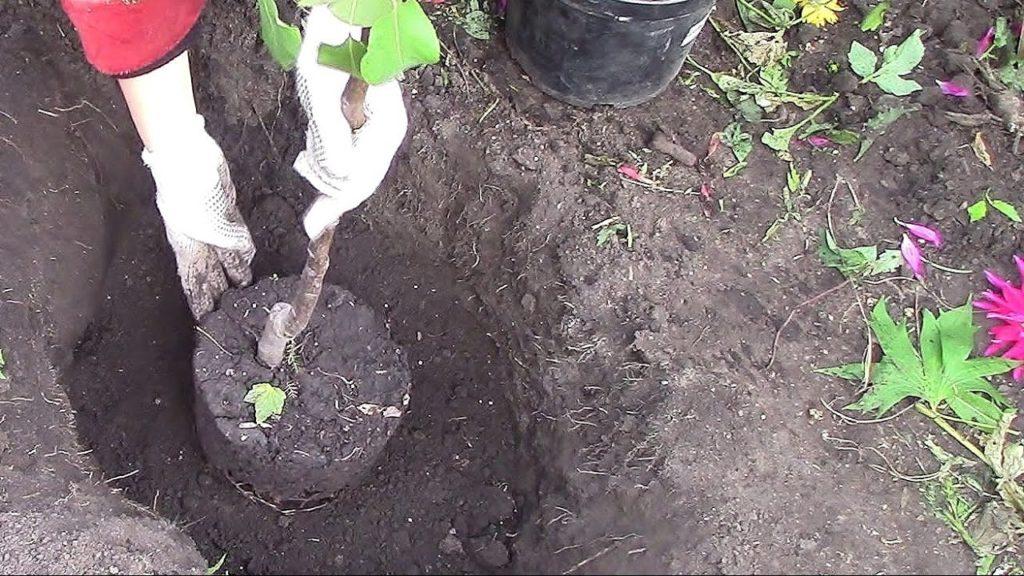
Preparation of seedlings
The root system of the apple tree is placed in a bucket of water for 1 hour. A fungicide can be added for disinfection.
Optimal site selection and soil preparation
The apple tree prefers to grow in a sunny area with a low groundwater table. The soil is selected loamy or sandy loam. The hole is dug 2-3 weeks before planting the tree.
Dates and scheme of disembarkation
The apple tree is planted in spring or autumn. The procedure is performed as follows:
- dig a hole 80 × 80 centimeters in size;
- lay out drainage;
- fill the pit with fertile soil;
- planting an apple tree;
- covered with soil, watered abundantly.
The trunk circle is mulched to retain moisture.
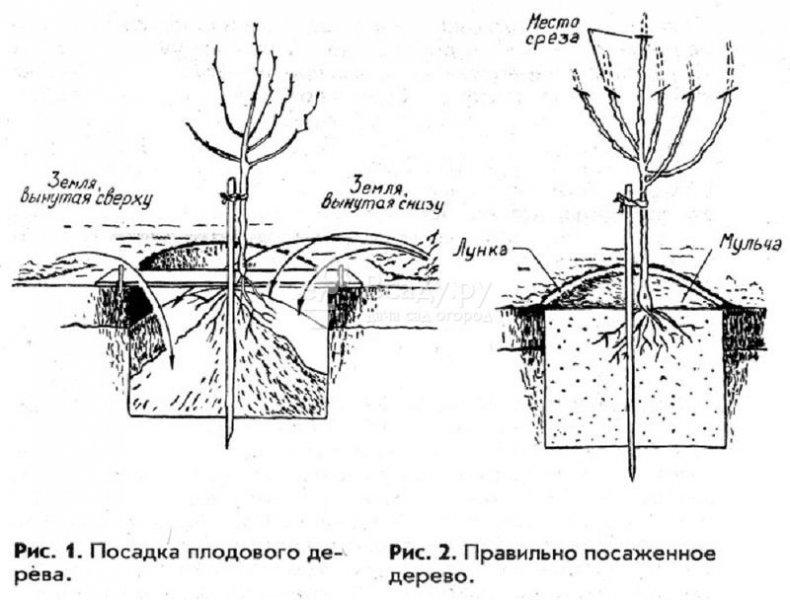
Conditions for proper care
The quantity and quality of the fruit depends on proper crop care.
Watering and loosening the soil
Young seedlings require frequent irrigation. With age, the tree forms a branched root system, and the frequency of watering is reduced. To prevent the formation of a crust, the soil is periodically loosened.
Top dressing
The next year after planting, a solution of chicken manure or slurry is introduced. Potash and phosphorus fertilizers are used in summer. After harvesting, minerals are added, with the exception of nitrogen.
Pruning and shaping the crown
Sanitary pruning throughout the season will keep the trees free from disease and pests. When forming the crown, they get rid of the branches growing inward.
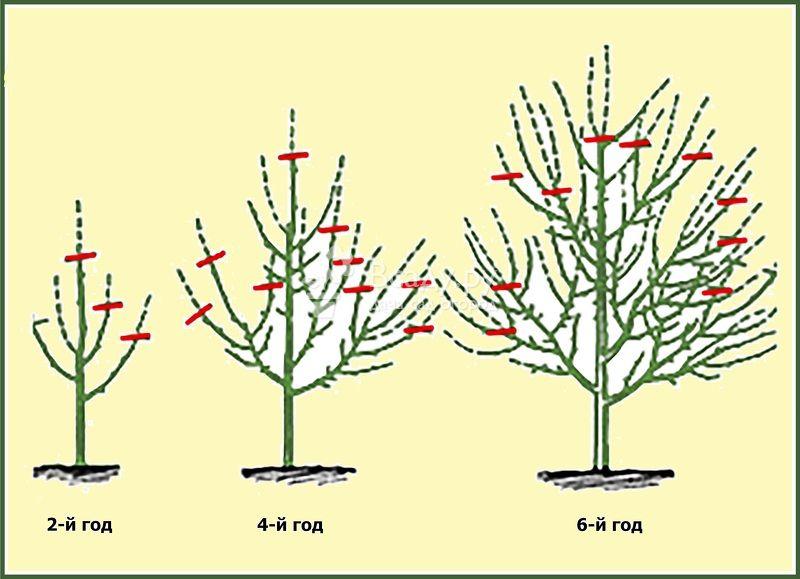
Preventive treatment
To prevent the appearance of diseases and pests, trees are sprayed several times per season with special preparations. Processing cannot be carried out during the flowering period of trees.
Mulching and wintering
The root circle is sprinkled with mulch: straw, sawdust, peat. The procedure will prevent moisture evaporation and promote the safe wintering of trees. A special shelter for a frost-resistant apple tree is not required.
The nuances of fruiting
Apple trees of the Podarok Grafsky variety are self-fertile. For fruit to set, planting nearby apple trees of other varieties is required.
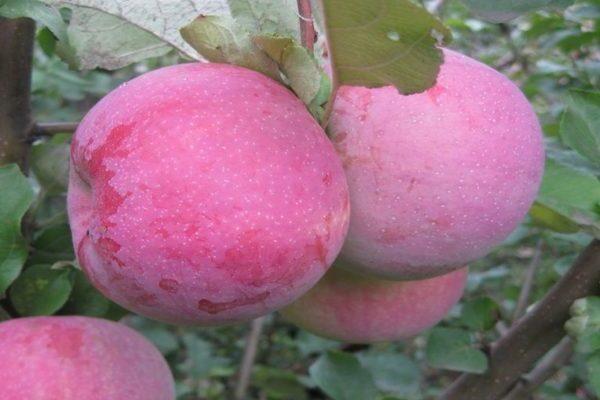
Flowering period
The buds bloom in May. The petals are colored pink.
Fruit ripening period
Harvested in late September or early October. After a month, the fruits become even tastier. They are stored until the end of April.
Collecting and using apples
Fruits are removed from trees in dry, calm weather. The use of fruits is universal. Apples are eaten fresh, frozen, dried, canned.
